When thinking of home renovations or new constructions, homeowners often gravitate towards traditional kitchen construction methods, assuming their reliability. Yet, modular kitchen designs present a host of advantages over conventional built-in styles, particularly in terms of customization, practicality, affordability, and long-term satisfaction. Modular kitchens provide unparalleled flexibility, allowing homeowners to tailor layouts, materials, and features to suit their unique preferences and spatial constraints. Moreover, their modular nature facilitates easier installation, reducing labor costs and project timelines. Affordability is another key advantage, as modular kitchens often offer cost-effective solutions without compromising quality or aesthetics. Additionally, their adaptability ensures long-term satisfaction, enabling easy upgrades or modifications as needs evolve. By embracing modular kitchen designs, homeowners can unlock a realm of possibilities, transforming their kitchens into personalized, functional, and stylish spaces that truly reflect their lifestyles and tastes.
Post your Requirement
|
Term |
Definition |
|
Modular Kitchen |
A type of kitchen design characterized by pre-made cabinet modules or units that are assembled on-site to create a customized kitchen layout. Modular kitchens offer flexibility, ease of installation, and a wide range of design options to suit various spaces and preferences. They typically include modular cabinets, countertops, appliances, and storage solutions, allowing for efficient use of space and enhanced functionality. |
|
Modular Kitchen Design |
The process of planning and creating a modular kitchen layout tailored to the specific needs, preferences, and constraints of a space. Modular kitchen design involves selecting cabinet styles, finishes, materials, and configurations to optimize storage, workflow, and aesthetics while ensuring seamless integration with the overall interior design scheme. |
|
Modular Kitchen Trends |
Emerging styles, features, and innovations in modular kitchen design and technology. Modular kitchen trends may include design elements such as open shelving, minimalist aesthetics, integrated appliances, smart storage solutions, and sustainable materials. Keeping abreast of modular kitchen trends allows homeowners and designers to incorporate contemporary and desirable features into their kitchen designs. |
|
Modular Kitchen Price |
The cost associated with purchasing and installing a modular kitchen. Modular kitchen prices vary depending on factors such as the size of the kitchen, quality of materials, level of customization, brand reputation, and additional features. Pricing may include costs for cabinets, countertops, appliances, accessories, installation, and any customization or upgrades requested by the client. |
If debating between modular versus traditional approaches for your next kitchen project, consider these 5 top advantages of modular layouts.
1. Optimized for Personalized Fit:
Traditional kitchens utilize fixed cabinetry built directly onto the home’s foundation walls, limiting layout flexibility and forcing you to settle for an existing footprint rather than truly customizing. Cabinet pole positions and appliance cut-outs get permanently set based on initial drawings. Changes often require impractical demolition and rebuild work.
Conversely, the inherent nature of modular construction revolves around adjustable elements to fit your space requirements and preferences precisely. Mix and match cabinet components like wall units, base units, floor units, and islands offer near-endless layout arrangements to optimize room flow and storage capacity. By selecting from vast component choices and then configuring how you wish, the final design realizes your vision versus generic constraints.
2. Facilitates Seamless Future Alterations:
Over time as lifestyle factors evolve – from family size changes to new hobbies to mobility needs – you will likely want to modify components in a well-utilized kitchen. Modular designs built on a flexible platform enable component swapping, repositioning, additions, and subtractions over time with relative ease compared to permanent traditional construction.
Pre-fabricated modules can detach from walls readily. New elements insert seamlessly since underlying connections share standards. By anticipating inevitable changes, modular kitchens sustain greater usefulness for years before requiring full overhauls down the road.
3. Promotes Quality and Consistency:
Traditional kitchen construction relies heavily on individual contractor capabilities for acceptable outcomes – with quality and consistency varying from project to project based on work crews’ skills, attention to detail, solution knowledge, and more. Pre-fab modular components utilize industrialized mass production.
Leveraging automation technology, reputable modular kitchen manufacturers can deliver exact build precision and dimensional accuracy for cabinets, consistent finish appearances, and standardized features/hardware/components with less craftsmanship variability. Higher quality control lowers failure rates. And orderly assembly prevents measuring miscues creating wasted efforts on-site.
4. Reduces Construction Mess and Disruption:
Standard kitchen remodels require demolishing old structures down to the studs before careful rebuilding – often taking weeks and generating substantial dust, debris, and disruption within an occupied home. By contrast, modular approaches allow preparing refreshed components in external factories while existing kitchens remain fully functional. New fixtures are then installed rapidly.
With components built offsite and then trucked in just in time for installation, home occupants avoid protracted build disturbance and chaos. Doubly beneficial when renovating restaurants, hotels, and other operations needing to uphold business hours amid upgrades.
5. More Affordable Cost Structure:
Thanks to streamlined design processes, buyer choice flexibility, assembly line efficiency gains, standardized components, and swifter installation, modular kitchens typically cost 20-30% less than custom-crafted traditional builds. Even when selecting high-end finishes and accessories, modular elements offer more value per dollar.
Beyond upfront savings, if alterations ever become necessary down the road, modular kitchens better accommodate changes without demanding full overhauls. Only replace what specifically needs modernizing rather than the entire footprint. This adaptability saves thousands over the kitchen’s lifespan.
Conclusion
Kitchen upgrades represent major yet rewarding investments. When weighing options, modular designs consistently outperform traditional approaches through enhanced personalization, future-proof flexibility, construction quality, project disruption minimization, and overall cost advantages over time.
If seeking to install a highly functional, modernized kitchen aligned with your lifestyle for years to follow, modular builds offer unparalleled advantages homeowners crave.

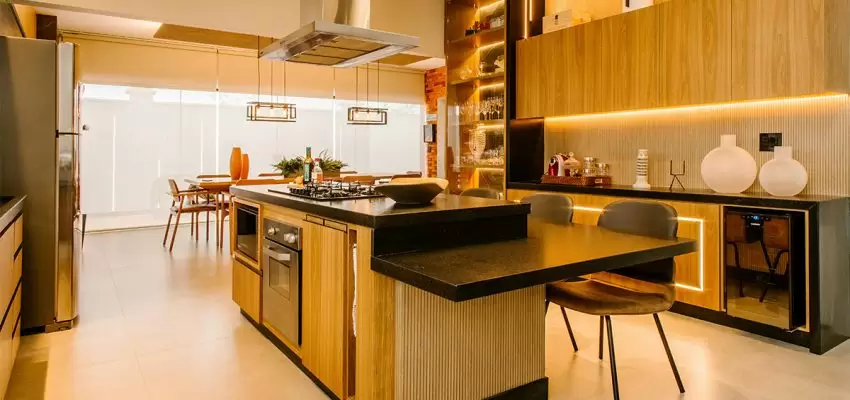
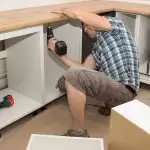
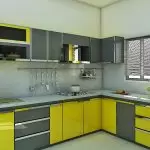
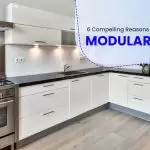
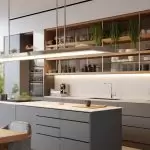

















Post A Comment